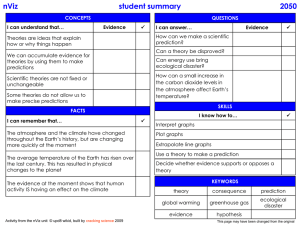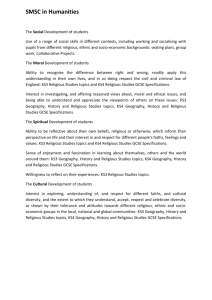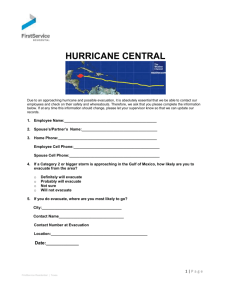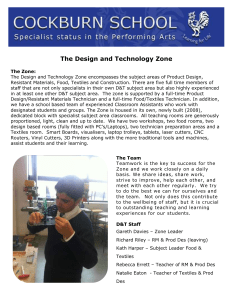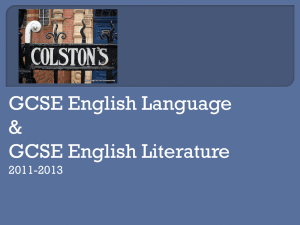The WIKID scheme
advertisement
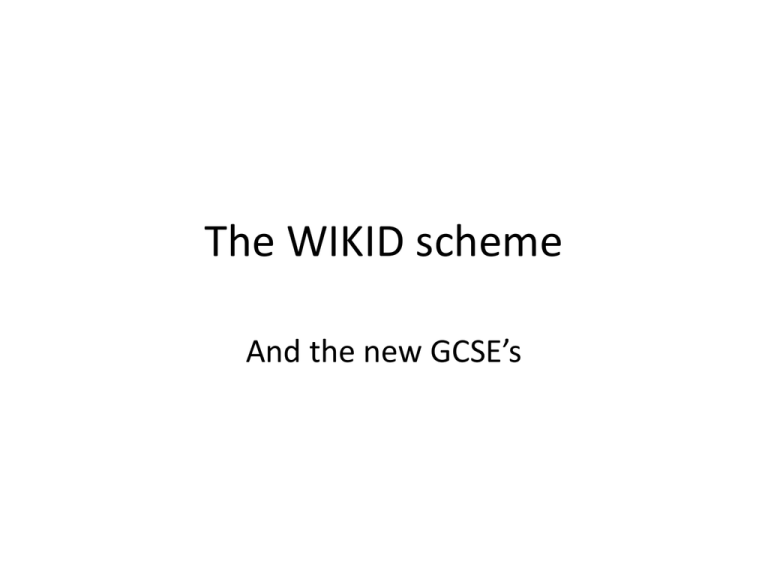
The WIKID scheme And the new GCSE’s Who am I • • • • Jon Bradford Head of Science Mill Hill County High School KS3 – Year 7 & 8 = WIKID (past two years) – Year 9 – under review • KS4 – OCR Gateway What is WIKID • Developed by Science UPD8 • Supported by the ASE • To meet the new KS3 requirements when they changed in 2008 • Inquiry based approach A different approach • Narrative approach – Use a story to • Engage students • Provide a context for the work • For example – Rocks • Students take on the role of volcanologists Evacuate 1 Eruption Team leader briefing – You are part of a team of scientists monitoring North, South or East Sector near an active volcano. The team must advise the Mayor if and when to order an evacuation of the city. Your team has scientists who are experts in different areas of science: Seismology (earth tremors) Geochemistry (gas monitoring) Air surveillance Geodesy (volcano dome shape) Having analysed the separate data you must collate all the information in to the summary sheet. You must identify when you would evacuate the area and inform your mayor. North south and East sites may need to respond at different times. Evacuate 1 Eruption SS4 Emergency Planning Map – North Team You will monitor hazards in the North Sector. You must advise the Mayor of Charlottesville if and when he needs to order an evacuation. north sector east sector south sector The seven E’s • Engage – Starter (storyline/context) • Elicit – Access previous knowledge • Explore – Student centred activity/experiment • Explain – Teacher led review of key points The seven E’s • Elaborate – Further work in a familiar context where students have to explain their ideas in more depth • Expand – Apply knowledge to a new un familiar context • Evaluate – Opportunities for formative and summative assessment • Quizzes and written tasks (APP) Pro’s and con’s • Pro’s – Less traditional, puts science in context, more variety, more student led, addresses How Science Works, establishes good teaching and learning practices • Con’s – Workload • adapting to suit students and teachers • Teachers and technicians preparing resources New GCSE’s • Little change to content – Some units rejigged • Big changes to assessment – 6 mark answers – Less structures answers (no scafolding) – More How Science Works questions – More questions on using and analysing data – Controlled Assessment WIKID @ KS4 • SEGUE – Two term bridging course – Similar style but building in some core GCSE content • Crucial – Not a whole scheme, but just key topics • New or difficult topics – Aiming to address the How Science Works elements How does it help? • Students are more used to – Writing in their own words in more detail – Thinking for themselves to solve a problem – Analysing and evaluating data – Answering about How Science Works questions – Working independently of teachers to plan experiments
